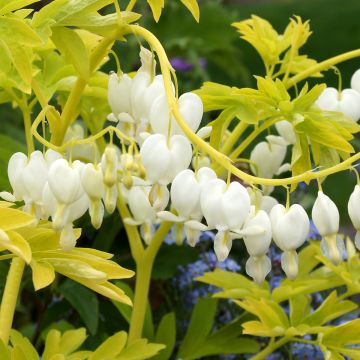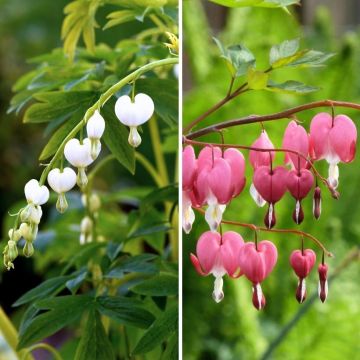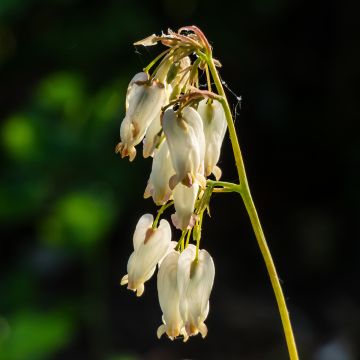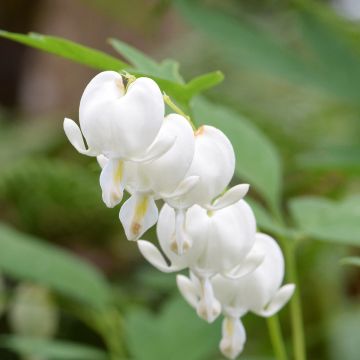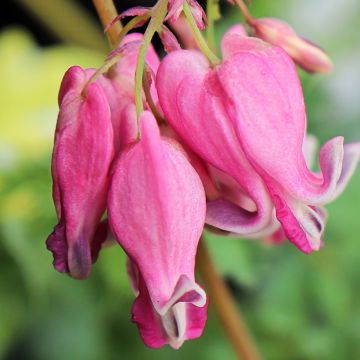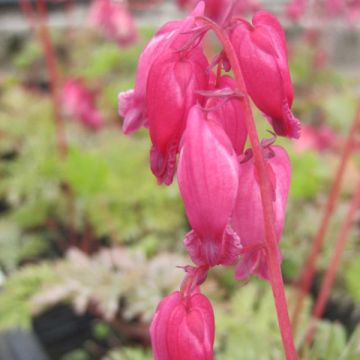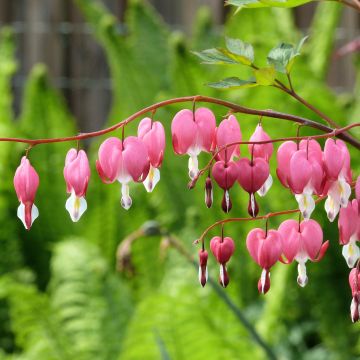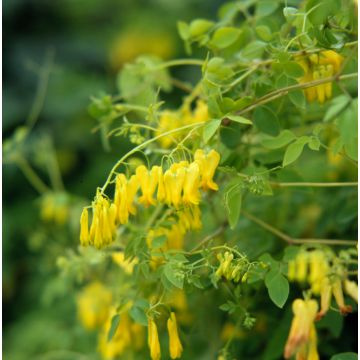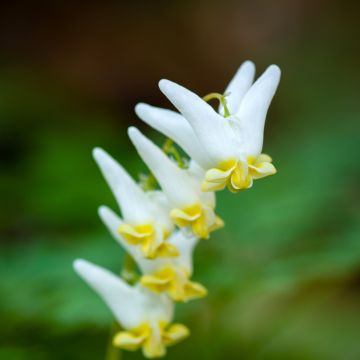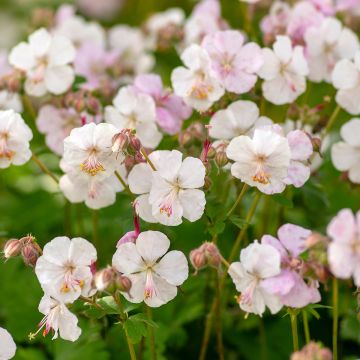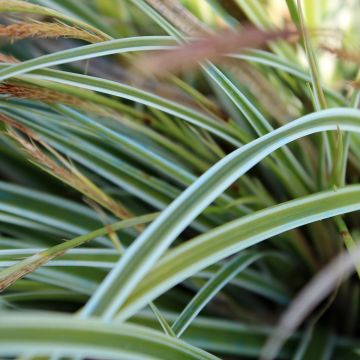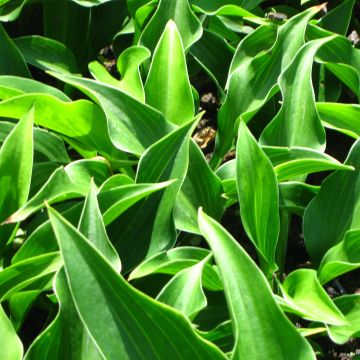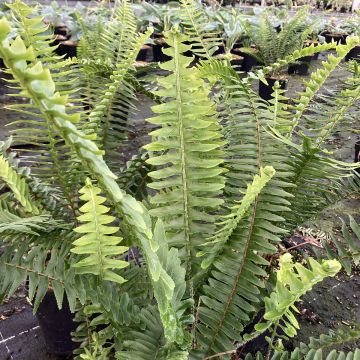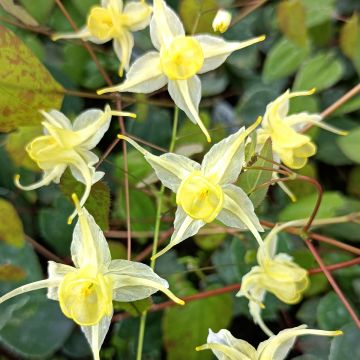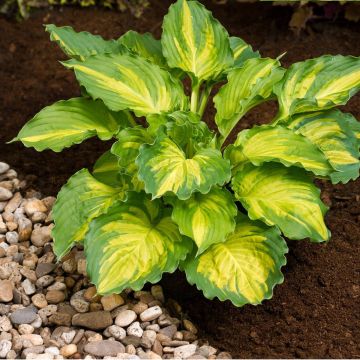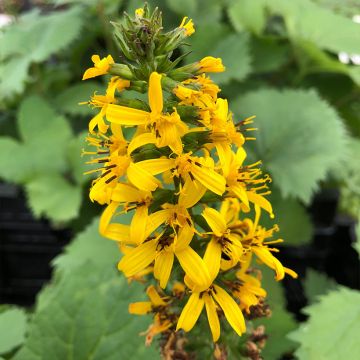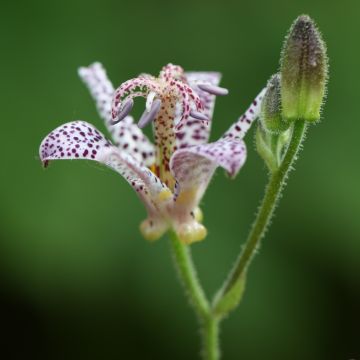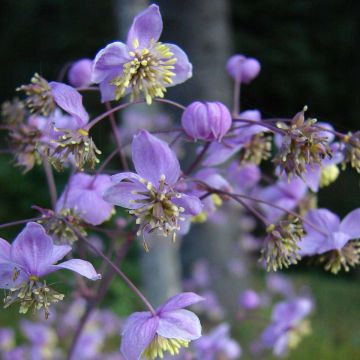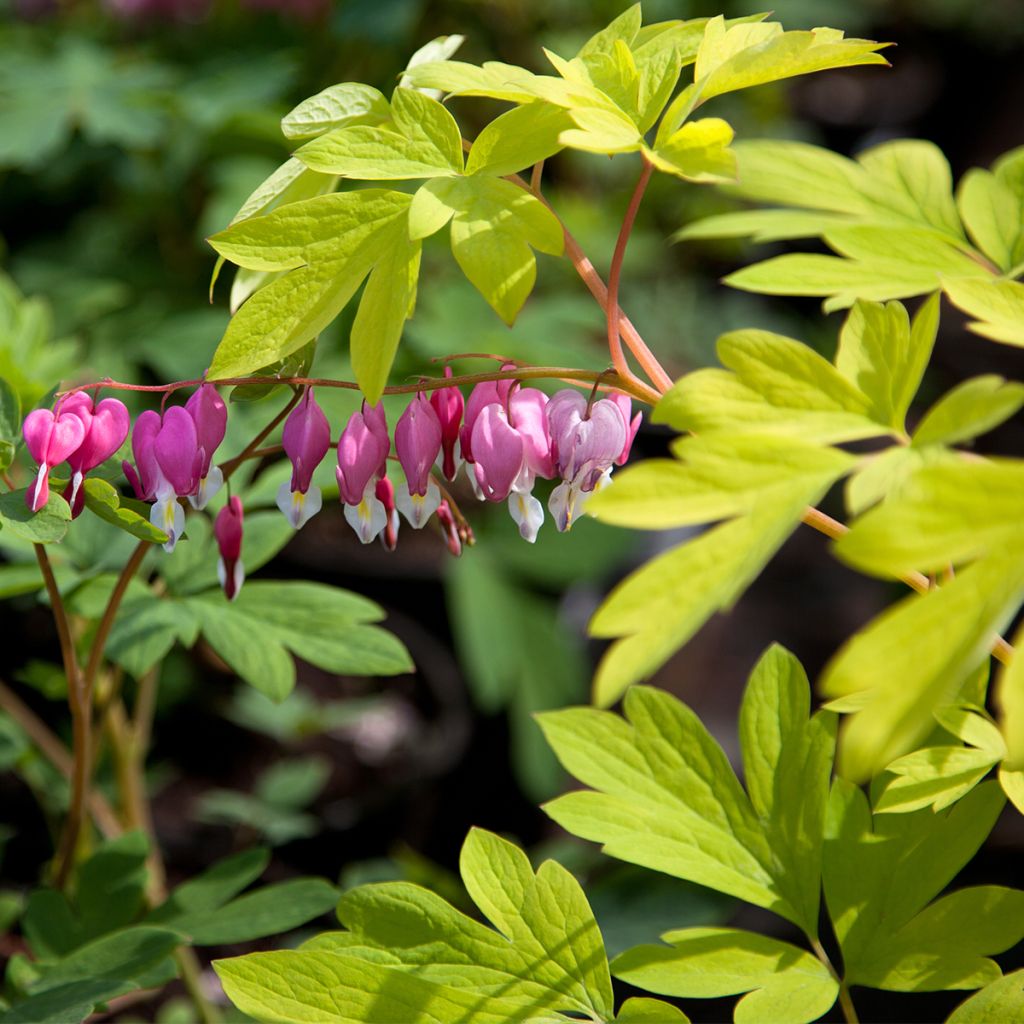

Coeur de Marie - Dicentra spectabilis Yellow Leaf
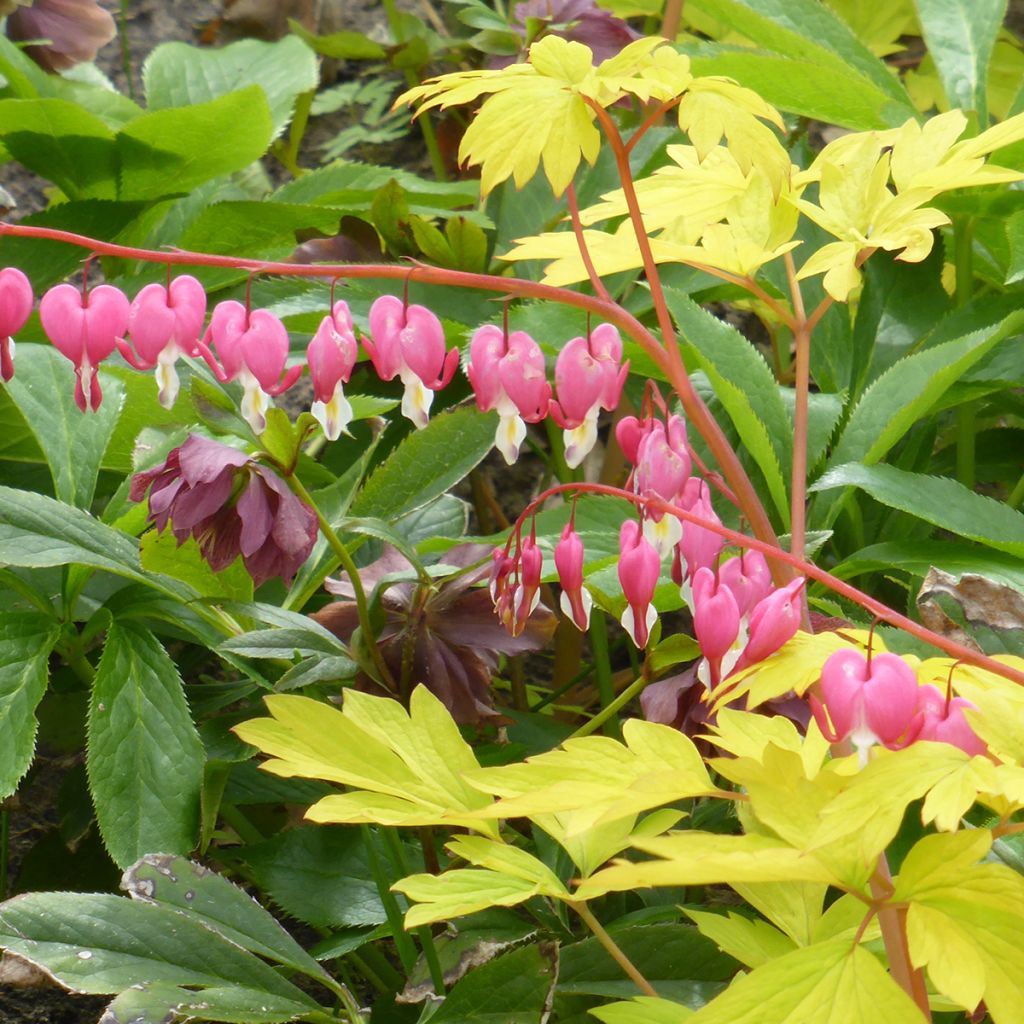

Coeur de Marie - Dicentra spectabilis Yellow Leaf
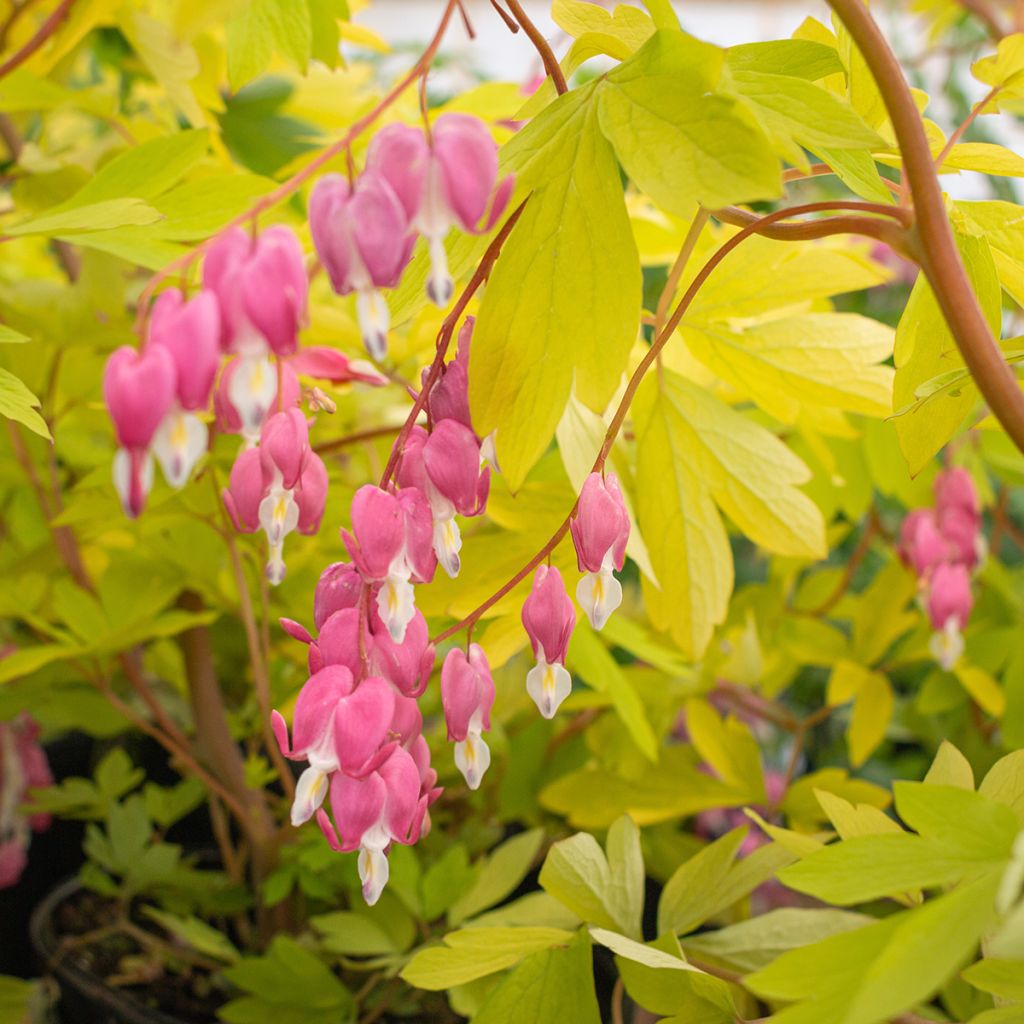

Coeur de Marie - Dicentra spectabilis Yellow Leaf
Dicentra spectabilis Yellow Leaf
Dicentra spectabilis Yellow Leaf
Bleeding Heart, Lyre Flower, Lady in a Bath
Delighted. Spring is coming and there she is blossoming.
Fanny, 23/03/2024
This item cannot be shipped to the selected country
Delivery charge from €5.90
More information
Schedule delivery date,
and select date in basket
This plant carries a 12 months recovery warranty
More information
We guarantee the quality of our plants for a full growing cycle, and will replace at our expense any plant that fails to recover under normal climatic and planting conditions.
From €5.90 for pickup delivery and €6.90 for home delivery
Express home delivery from €8.90.
Does this plant fit my garden?
Set up your Plantfit profile →
Description
Dicentra spectabilis 'Yellow Leaf' is a beautiful golden-leaved version of Bleeding Heart. It is a vigorous, hardy and truly luminous shade plant that contrasts well, especially with dark green foliage. Its very golden, finely textured foliage, beautifully enhances a more classic pink flowering, in the shape of pendulous hearts on reddish, arched stems. This perennial tolerates any ordinary soil that remains moist. During the summer, it enters dormancy after losing its leaves.
Dicentra spectabilis Yellow Leaf is derived from Dicentra (or Lamprocapnos) spectabilis, native to forests in eastern Asia, southern Siberia, and Japan. It belongs to the Papaveraceae family, or the Fumariaceae family according to classifications. It is a rhizomatous and deciduous perennial, disappearing in winter to reappear in spring. It rapidly forms a bushy clump in a few years, reaching a height of 60 cm (24in) and a spread of 90 cm (35in). The plant spreads laterally through trailing rhizomes, allowing it to expand if conditions are favourable and giving it a fairly lush appearance.
The stems of this Bleeding Heart emerge in spring bearing delicate divided leaves, golden yellow, turning yellow tinged with chartreuse during the season. The flowering occurs in May-June depending on the climate, and can continue until July if the soil remains consistently moist. Otherwise, the Bleeding Heart enters dormancy in summer. At the end of the reddish arched floral stems, rising 80-85 cm (32-34in) from the ground, 3 to 15 pendulous flowers appear, measuring 3 to 5 cm (1 to 2in) high and 2 to 3 cm (1in) wide. Each flower is composed of pink outer petals forming a heart and arrow-shaped inner petals. After pollination by insects, they produce pods that contain round and black seeds enveloped in a white, sticky substance.
The Yellow Leaf Bleeding Heart is a plant that is truly easy to grow in most regions, but it does not like climates that are too hot and dry in summer. It fits in cottage or naturalistic-inspired gardens, always in a cool and shady location. It can be associated with other perennials that do not mind competition from tree or shrub roots. Consider purple Heucheras, Columbines, Solomon's Seal, hardy Fuchsias, Corydalis, creeping Bugleweed, Japanese Anemones, or a carpet of Periwinkles, for example.
Most Bleeding Hearts go dormant in summer, but this has no effect on the plants' health.
Report an error about the product description
Dicentra spectabilis Yellow Leaf in pictures
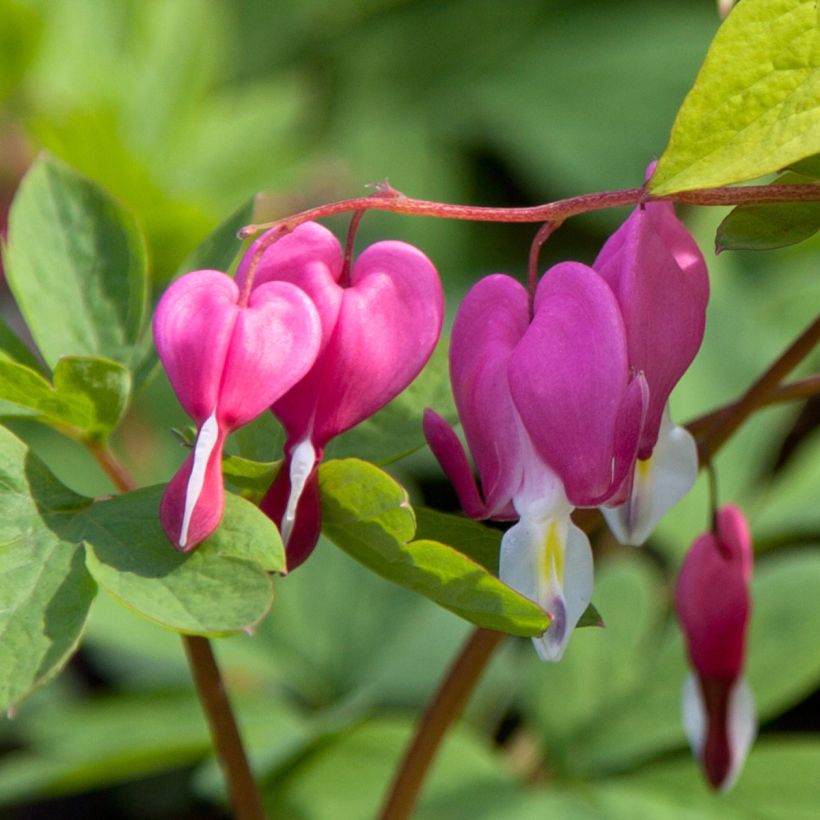

Flowering
Foliage
Plant habit
Botanical data
Dicentra
spectabilis
Yellow Leaf
Papaveraceae (Fumariaceae)
Bleeding Heart, Lyre Flower, Lady in a Bath
Cultivar or hybrid
Other Dicentra - Bleeding Hearts
Planting and care
Yellow Leaf Bleeding Heart (Dicentra spectabilis, now called Lamprocapnos spectabilis) is a perennial plant found in cool Asian woodlands, preferring partial shade or light sunlight.
Its fleshy crown requires good garden soil to thrive: well-drained, humus-rich, and lightweight. It can rot in clayey and heavy soil. It also dislikes hot and overly dry conditions.
This plant undergoes summer dormancy: after flowering in spring, the Bleeding Heart goes dormant with the first heat, and all its above-ground parts dry up and disappear until the following spring. This is completely normal and allows this species to withstand the hottest periods without any problems.
If your soil is too poor or sandy, you can add a thick layer of dead leaves in autumn, which will enrich and loosen your flower beds after a few years. Avoid synthetic fertilizers that only enrich the soil in the short term.
Weekly watering is recommended during the first summer to promote growth. Stop watering when the leaves turn yellow and disappear.
The tender leaves of the Bleeding Heart are also quite susceptible to slugs and snails at the beginning of growth. Place ashes, eggshells, or, organic deterrents around the crown.
Planting period
Intended location
Care
-
, onOrder confirmed
Reply from on Promesse de fleurs
Shade-loving perennials
Haven't found what you were looking for?
Hardiness is the lowest winter temperature a plant can endure without suffering serious damage or even dying. However, hardiness is affected by location (a sheltered area, such as a patio), protection (winter cover) and soil type (hardiness is improved by well-drained soil).

Photo Sharing Terms & Conditions
In order to encourage gardeners to interact and share their experiences, Promesse de fleurs offers various media enabling content to be uploaded onto its Site - in particular via the ‘Photo sharing’ module.
The User agrees to refrain from:
- Posting any content that is illegal, prejudicial, insulting, racist, inciteful to hatred, revisionist, contrary to public decency, that infringes on privacy or on the privacy rights of third parties, in particular the publicity rights of persons and goods, intellectual property rights, or the right to privacy.
- Submitting content on behalf of a third party;
- Impersonate the identity of a third party and/or publish any personal information about a third party;
In general, the User undertakes to refrain from any unethical behaviour.
All Content (in particular text, comments, files, images, photos, videos, creative works, etc.), which may be subject to property or intellectual property rights, image or other private rights, shall remain the property of the User, subject to the limited rights granted by the terms of the licence granted by Promesse de fleurs as stated below. Users are at liberty to publish or not to publish such Content on the Site, notably via the ‘Photo Sharing’ facility, and accept that this Content shall be made public and freely accessible, notably on the Internet.
Users further acknowledge, undertake to have ,and guarantee that they hold all necessary rights and permissions to publish such material on the Site, in particular with regard to the legislation in force pertaining to any privacy, property, intellectual property, image, or contractual rights, or rights of any other nature. By publishing such Content on the Site, Users acknowledge accepting full liability as publishers of the Content within the meaning of the law, and grant Promesse de fleurs, free of charge, an inclusive, worldwide licence for the said Content for the entire duration of its publication, including all reproduction, representation, up/downloading, displaying, performing, transmission, and storage rights.
Users also grant permission for their name to be linked to the Content and accept that this link may not always be made available.
By engaging in posting material, Users consent to their Content becoming automatically accessible on the Internet, in particular on other sites and/or blogs and/or web pages of the Promesse de fleurs site, including in particular social pages and the Promesse de fleurs catalogue.
Users may secure the removal of entrusted content free of charge by issuing a simple request via our contact form.
The flowering period indicated on our website applies to countries and regions located in USDA zone 8 (France, the United Kingdom, Ireland, the Netherlands, etc.)
It will vary according to where you live:
- In zones 9 to 10 (Italy, Spain, Greece, etc.), flowering will occur about 2 to 4 weeks earlier.
- In zones 6 to 7 (Germany, Poland, Slovenia, and lower mountainous regions), flowering will be delayed by 2 to 3 weeks.
- In zone 5 (Central Europe, Scandinavia), blooming will be delayed by 3 to 5 weeks.
In temperate climates, pruning of spring-flowering shrubs (forsythia, spireas, etc.) should be done just after flowering.
Pruning of summer-flowering shrubs (Indian Lilac, Perovskia, etc.) can be done in winter or spring.
In cold regions as well as with frost-sensitive plants, avoid pruning too early when severe frosts may still occur.
The planting period indicated on our website applies to countries and regions located in USDA zone 8 (France, United Kingdom, Ireland, Netherlands).
It will vary according to where you live:
- In Mediterranean zones (Marseille, Madrid, Milan, etc.), autumn and winter are the best planting periods.
- In continental zones (Strasbourg, Munich, Vienna, etc.), delay planting by 2 to 3 weeks in spring and bring it forward by 2 to 4 weeks in autumn.
- In mountainous regions (the Alps, Pyrenees, Carpathians, etc.), it is best to plant in late spring (May-June) or late summer (August-September).
The harvesting period indicated on our website applies to countries and regions in USDA zone 8 (France, England, Ireland, the Netherlands).
In colder areas (Scandinavia, Poland, Austria...) fruit and vegetable harvests are likely to be delayed by 3-4 weeks.
In warmer areas (Italy, Spain, Greece, etc.), harvesting will probably take place earlier, depending on weather conditions.
The sowing periods indicated on our website apply to countries and regions within USDA Zone 8 (France, UK, Ireland, Netherlands).
In colder areas (Scandinavia, Poland, Austria...), delay any outdoor sowing by 3-4 weeks, or sow under glass.
In warmer climes (Italy, Spain, Greece, etc.), bring outdoor sowing forward by a few weeks.

































